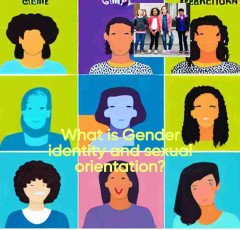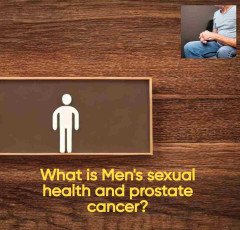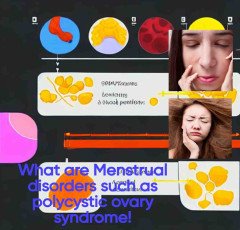
What are Gender identity and sexual orientation?

A person's internal sense of being male, female, both, neither, or another gender is referred to as gender identity.
It is an intensely private and arbitrary sensation that might or might not correspond to the sex assigned at birth. There are several methods to show one's gender identification, such as through behavior, attire, and language.
A person's pattern of emotional, romantic, and/or sexual attraction to others is referred to as their sexual orientation.
An attraction to people of the same gender (homosexuality), the opposing gender (heterosexuality), both genders (bisexuality), or neither gender (asexuality) can fall under this category. Although they are frequently discussed together because they both include aspects of an individual's identity that are intensely personal and may not conform to society expectations or conventions, sexual orientation and gender identity are not the same.
Sexual orientation and gender identity are independent facets of an individual's identity.
While sexual orientation refers to one's attraction to other people, gender identity refers to one's sense of self. However, both can have a significant impact on how someone experiences and engages with the environment.
To acknowledge the complexity and diversity of sexual orientation and gender identity.
Not everyone complies with neat classifications or sexuality or gender binary definitions. Some people may self-identify as genderqueer or non-binary, which means that their gender identification does not fall neatly into the categories of male or female.
Similar to pansexuality, queerness refers to a person's sexual orientation that includes attraction to people of all genders.
Regardless of whether their gender identity or sexual orientation fits with society norms or expectations, it is crucial to respect and validate people's sexual orientation and gender identity. Everyone has the right to self-determination and the freedom to express oneself in ways that are true to who they are and feel genuine to them.
Unfortunately, many people still experience harassment, assault, and discrimination because of their sexual orientation and gender identity.
Post-traumatic stress disorder (PTSD) and other mental health problems including anxiety and depression may result from this. Environments that are secure and encouraging for persons with all gender identities and sexual preferences must be established.
In many regions of the world, there has been an increase in recent years in the understanding of and acceptance of gender diversity and sexual orientation. As a result, LGBTQ+ people are now more widely visible and represented in the media, politics, and other spheres of public life. To fully achieve equality and inclusion for people of all gender identities and sexual orientations, there is still much work to be done.
To confront our own biases and presumptions while educating ourselves on gender identity and sexual orientation.
No matter their gender identity or sexual orientation, by doing this, we can contribute to the development of a more just and equal society for everyone.
It is crucial to realize that you are not alone if you are having difficulties expressing your gender identity or sexual orientation.
You can use services like therapy, support groups, and internet forums to explore and comprehend your emotions.
Realizing who you are could take some time, but that's all right. Being true to yourself and finding individuals who will accept and support you for who you are is what's most essential.
There are numerous methods to support and fight for the rights of gender and sexual minorities if you are an ally of the LGBTQ+ community.
Speaking up against prejudice and bigotry, educating oneself and others about gender and sexual variety, and assisting organizations that promote equality are some examples of what this entails.
Regardless of gender identity or sexual orientation, everyone deserves to live a life free from prejudice and abuse.
We can ensure that everyone may live their lives to the fullest, with dignity, and respect by uniting to build a more tolerant and inclusive world.
The following are some strategies to make the world more welcoming and inclusive of persons with all gender identities and sexual preferences:
Educate yourself:
Learn about the viewpoints and experiences of people from various gender and sexual origins. This can improve your empathy and understanding by forcing you to confront your own prejudices and presumptions.
Talk up:
When you notice discriminatory remarks or actions, call them out. The rights and dignity of persons with all gender identities and sexual orientations need your support. Use your voice to do so.
Support LGBTQ+ organizations:
Several organizations work to enhance the rights of LGBTQ+ persons. Support these groups. As a way to demonstrate your support, think about giving these groups your time or money or by attending events.
Create safe spaces:
Make an effort to create settings where people of all gender identities and sexual orientations feel accepted, whether in your business, neighborhood, or social circles.
Use language that is inclusive:
Avoid making assumptions about the gender or sexual orientation of others and, if possible, use gender-neutral terminology. This could contribute to making the environment more welcoming and inclusive of all people.
By performing these actions, we can unite to build a society where people of various gender identities and sexual orientations can live in respect and dignity.
Support intersectional approaches:
Support intersectional methods by acknowledging that sexual orientation and gender identity are only one part of an individual's identity and that many people experience numerous types of marginalization and discrimination. Encourage approaches that recognize and address how gender, race, class, ability, and other identities overlap.
Listen to and amplify LGBTQ+ voices:
LGBTQ+ voices should be heard and amplified. When making decisions that have an impact on their lives, discussions and debates should prioritize the voices and experiences of LGBTQ+ individuals. This can ensure that the needs and viewpoints of the LGBTQ+ community are taken into account when developing policies and practices.
In defense of LGBTQ+ rights:
Support non-discrimination laws, marriage equality, and access to healthcare as well as other laws and policies that improve the rights and protections of LGBTQ+ people.
Celebrate and embrace diversity:
This includes the variety of sexual orientations and gender identities. Participate in Pride celebrations and other LGBTQ+ events, and educate yourself on the cultures and histories of LGBTQ+ groups all over the world.
Practice self-care:
Self-care is crucial for anybody, ally or member of the LGBTQ+ community, so make time for it and get help when you need it. This can include counseling, support networks, and other tools that can guide you through life's difficulties and rewards.
We can all work together to make the world a place that appreciates and respects people of different gender identities and sexual orientations and guarantees that everyone has the chance to live their life to the fullest.
A world that values and respects people of all gender identities and sexual orientations must be established.
We can build a more welcoming and inclusive society by cooperating and implementing these actions.
Always keep in mind that progress could be sluggish and that transformation can take time.
However, even modest gestures and behaviors have a significant impact. Your voice and your actions count, whether you are a member of the LGBTQ+ community or an ally.
Together, we can work to make the world a place where everyone may live with respect and dignity, free from violence and discrimination.
Should keep supporting and speaking out for LGBTQ+ people's rights. The following extra steps are available for us to take:
Challenge gender norms:
In your personal life and in your relationships, challenge gender stereotypes by acknowledging their potential for harm and limitation.
LGBTQ+ youth need your support since they are more likely to experience harassment and discrimination. Encourage groups and initiatives that offer resources and assistance to young LGBTQ+ people.
Promote LGBTQ+ rights globally because there are numerous places in the globe where these people suffer serious obstacles. Support laws and programs that advance the rights and safety of LGBTQ+ people around the world.
Engage in political activism:
Political activism is encouraged. Speak up for laws and policies that support the rights and protections of LGBTQ+ people by contacting your government representatives.
Remain informed:
Follow news and events that affect the LGBTQ+ community. To learn more, read books and articles by LGBTQ+ writers, follow LGBTQ+ news sources, go to events, and take part in workshops.
We can build a more just and inclusive world for everyone if we keep taking action and fighting for the rights and protections of LGBTQ+ people.
It is more crucial to carry on acting and speaking up for the rights and protections of LGBTQ+ people. Here are some further steps we can take:
Support LGBTQ+ businesses and artists:
Support LGBTQ+ companies and artists by purchasing their goods, going to their performances, and spreading the word about their creations.
Assist those seeking asylum who identify as LGBTQ+:
Worldwide, discrimination and persecution against LGBTQ+ people frequently cause them to leave their homes. Assistance for LGBTQ+ refugees and asylum seekers should be provided by groups.
Create inclusive policies and practices:
Whether you are a business owner, educator, or community leader, work to create policies and practices that are inclusive of all gender identities and sexual orientations.
Use your platform:
If you have a medium to speak out for LGBTQ+ rights and inform your audience, such as social media, a blog, or a podcast, use it.
Practice empathy and compassion:
Empathy and compassion are the cornerstones of building a more inclusive and tolerant environment. Be sure to approach people with an open heart and mind, and try to comprehend their perspectives and experiences.
By doing these things, we can keep moving forward toward a more just and inclusive world for everyone.
Yes, it is crucial to continue acting and speaking up for the rights and protections of LGBTQ+ people. Here are some further steps we can take:
Support for LGBTQ+ mental health:
Because of prejudice, harassment, and rejection, LGBTQ+ people are more likely to experience mental health problems.
Support the work of mental health organizations that assist and support LGBTQ+ people.
Speak up against prejudice and hate speech:
Whenever you come across either, speak out against it. A straightforward way to do this is to call out a friend or family member who uses a homophobic slur or to report discriminatory behavior to the appropriate authorities.
Be an ally:
Even if you are not a member of the LGBTQ+ community, being an ally entails actively promoting and supporting it. This can entail participating in Pride celebrations, speaking inclusively, and speaking out against harassment and discrimination.
Educate yourself and others:
Inform yourself and others on the struggles that the LGBTQ+ community faces. To learn more, read books and articles by LGBTQ+ writers, watch documentaries and movies about LGBTQ+ issues, and participate in workshops and trainings.
By doing these things, we can keep advancing toward a society that is accepting of various gender identities and sexual preferences.
Additional steps we can take include the following
Support LGBTQ+ parents and families:
Supporting LGBTQ+ families and parents is important since many LGBTQ+ people are parents or are a part of LGBTQ+ households. Encourage groups and projects that offer resources and assistance to LGBTQ+ families and parents.
Celebrate diversity:
Acknowledge that there is no one "right" way to be LGBTQ+ and celebrate the diversity of the LGBTQ+ community. Respect and honor all members of the community's experiences and identities.
Advocate for LGBTQ+ inclusion in education:
Advocate for inclusive education policies and curricula that acknowledge and promote the experiences and contributions of LGBTQ+ people in the classroom.
Healthcare for LGBTQ+ people should be supported because they frequently encounter discrimination and a lack of understanding from healthcare professionals. Support organizations and programs that offer healthcare that is inclusive of LGBTQ+ people.
Continue to study and develop:
Even if you consider yourself an ally or a member of the LGBTQ+ community, there is always room for improvement in your knowledge of, and ability to advocate for, LGBTQ+ issues. Continue seeking out fresh insights and viewpoints, and have an open mind to criticism.
By doing these things, we can keep moving in the direction of a society that embraces all gender identities and sexual orientations.
Yes, it is crucial to continue acting and speaking up for the rights and protections of LGBTQ+ people. Here are some further steps we can take
Support LGBTQ+ representation in media:
Support media that features LGBTQ+ characters and plot lines. Speak out in favor of more LGBTQ+ people being represented in the media and in entertainment.
Advocate for LGBTQ+ rights in the workplace:
Promote inclusive policies and practices in the workplace, such as non-discrimination policies and benefits for LGBTQ+ employees and their families, to advance LGBTQ+ rights.
Support LGBTQ+ seniors:
LGBTQ+ seniors frequently experience isolation and confront particular aging-related difficulties. Support organizations and programs that offer information and assistance to seniors who identify as LGBTQ+.
Supporter of LGBTQ+ rights in the court system:
The criminal justice system frequently has an unfairly negative effect on LGBTQ+ people, including greater rates of incarceration and assault. Promote laws and programs that aim to eliminate these inequalities.
Support intersectional activism:
Support intersectional activism by acknowledging that LGBTQ+ people do not constitute a monolithic group and that their experiences and identities frequently intersect. Encourage activity and projects that attack LGBTQ+ issues from multiple angles.
We can continue to work toward a society that is equitable and inclusive of all gender identities and sexual orientations by taking these steps.
Here are some further steps we can take
Support LGBTQ+ refugees and asylum seekers:
Due to discrimination and persecution in their home countries, LGBTQ+ people encounter substantial difficulties when requesting protection and asylum. Encourage groups and projects that offer resources and assistance to LGBTQ+ refugees and asylum seekers.
Advocate for LGBTQ+ rights in sports:
Sports fans and athletes who identify as LGBTQ+ frequently experience harassment and discrimination. Support LGBTQ+ athletes and teams while promoting inclusive sports rules and practices.
Support LGBTQ+ youth:
Because of discrimination and rejection, LGBTQ+ youth are more likely to experience homelessness, depression, and suicide. Encourage groups and programs that offer resources and assistance to young LGBTQ+ people.
Internationally, there are many nations that outlaw homosexuality and discriminate against LGBTQ+ people, so it is important to
stand up for their rights. Support international laws and programs that advance the rights and protections of LGBTQ+ people.
Support LGBTQ+ businesses:
Support LGBTQ+-owned and -operated companies, and speak out in favor of laws and programs that support the economic empowerment of LGBTQ+ people.
By following these steps, we can keep moving in the direction of a society that is accepting and encouraging of all gender identities and sexual orientations, both locally and internationally.















 SEO Checklist
SEO Checklist  Best Selling Books
Best Selling Books  Unreal Engine 5 For Beginners Learn The Basics Of Virtual Production
Unreal Engine 5 For Beginners Learn The Basics Of Virtual Production  Artificial Intelligence
Artificial Intelligence  Best Home Appliances
Best Home Appliances  One World Collection
One World Collection  Hello Theme
Hello Theme  Creative Brief For Video Shoot
Creative Brief For Video Shoot  NordLocker
NordLocker  BEST SELLER TOP10
BEST SELLER TOP10  NordPass
NordPass  ELECTRONIC ACCESSORIES
ELECTRONIC ACCESSORIES  Top Rated From Amazon
Top Rated From Amazon  ASUS Laptop
ASUS Laptop  SOFAS
SOFAS  Online Marketing
Online Marketing  Favorite Company (Cuelinks)
Favorite Company (Cuelinks)  Online Technology Classes
Online Technology Classes  Graphics & Design
Graphics & Design  Women Fashion
Women Fashion  Sennheiser
Sennheiser  Hot Bags For Pain Relief
Hot Bags For Pain Relief  Unlimited access to classes on illustration, photography, design, film, music
Unlimited access to classes on illustration, photography, design, film, music  NordVPN
NordVPN  The Click Engine
The Click Engine  TitTok Revolution
TitTok Revolution  Smart Doorbell
Smart Doorbell  RPM 3.0
RPM 3.0  Only For The United States
Only For The United States  1150+Trendy kids coloring pages Bundle
1150+Trendy kids coloring pages Bundle  Best Robotic Vacuum Cleaners
Best Robotic Vacuum Cleaners  Men Clothing
Men Clothing  Acer Laptop
Acer Laptop  Amazon Best Selling Products
Amazon Best Selling Products  The Secret Email System
The Secret Email System  ASPINAL LONDON
ASPINAL LONDON  All Wireless Products
All Wireless Products  Best Sellers On Amazon
Best Sellers On Amazon 
















